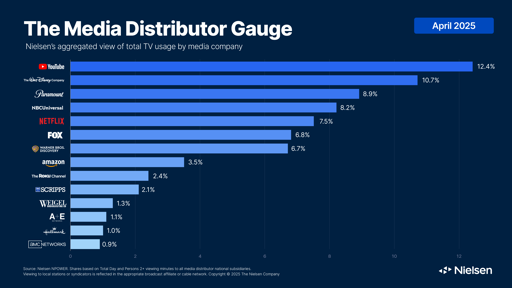Say Hello to the World's Largest Hard Drive, a Massive 36TB Seagate
-
What kind of degenerate do you think I am? That’s 36 hours to back up my walrus porn collection.

-
Yeah, but it's Seagate. I have worked in data centers, and Seagate drives had the most failures of all my drives and somehow is still in business. I'd say I was doing an RMA of 5-6 drives a month that were Seagate, and only 4-5 a year Western Digital.
Every drive I've had fail has been a Seagate. I replace them out of habit at this point.
-
I think if I needed to store 36TB of data, I would rather get several smaller disks.
Multiple drives in a RAID.
-
And linux distros
I have around 150 distros seeding
 . I need to get those numbers up!
. I need to get those numbers up! -
This post did not contain any content.
-
Yeah, but it's Seagate. I have worked in data centers, and Seagate drives had the most failures of all my drives and somehow is still in business. I'd say I was doing an RMA of 5-6 drives a month that were Seagate, and only 4-5 a year Western Digital.
I use all WD Golds for storage now but I have some Seagate barracudas from 2005 that still work. I don't use them anymore but the data is still there. I fire them up every so often to see. I know that's purely situational. I pretty much only buy WD now.
-
Yeah, but it's Seagate. I have worked in data centers, and Seagate drives had the most failures of all my drives and somehow is still in business. I'd say I was doing an RMA of 5-6 drives a month that were Seagate, and only 4-5 a year Western Digital.
My 1st thought was "but it's a Seagate" ...
-
I got some 16TB drives recently for around $200 each, though they were manufacturer recertified. Usually a recertified drive will save you 20-40%.
Shipping can be a fortune though.EDIT: I used manufacturer recertified, not refurbished drives.
Refurbished drives sound scary. Any data to point towards that not being a problem?
-
Yeah, but it's Seagate. I have worked in data centers, and Seagate drives had the most failures of all my drives and somehow is still in business. I'd say I was doing an RMA of 5-6 drives a month that were Seagate, and only 4-5 a year Western Digital.
Is that just observational, or did you keep track? Backblaze does track their failures, and publishes their data: https://www.backblaze.com/blog/backblaze-drive-stats-for-q1-2025/
-
SSD ≠ HDD
-
...or at least call a rubber walrus protector salesman!
-
Seagate so how long before it fails?
About 3 hours.
-
You wouldn't download your mom.
No, but I have downloaded yours.
-
Seagate so how long before it fails?
At least it's not a WD POS
-
Hello!

Why does this have so many up votes
-
Why does this have so many up votes
Check the post title

-
Words hard
And I would go so far as to say that nobody who is buying 36 TB spinners is doing offsite backups of that data. For any org doing offsites of that much data you are almost guaranteed using a tape drive of some form because... they pay for themselves pretty fast and are much better for actual cold storage backups.
Seagate et al keep pushing for these truly massive spinners and I really do wonder who the market is for them. They are overly expensive for cold storage and basically any setup with that volume of data is going to be better off slowly rotating out smaller drives. Partially because of recovery times and partially because nobody but a sponsored youtuber is throwing out their 24 TB drives because 36 TB hit the market.
I assume these are a byproduct of some actually useful tech that is sold to help offset the costs while maybe REALLY REALLY REALLY want 72 TBs in their four bay Synology.
And I would go so far as to say that nobody who is buying 36 TB spinners is doing offsite backups of that data.
Was this a typo? I would expect that almost everyone who is buying these is doing offsite backups. Who has this amount of data density and is ok with losing it?
Yes, they are quite possibly using tape for these backups (either directly or through some cloud service) but you still want offsite backups. Otherwise a bad fire and you lose it all.
-
Seagate so how long before it fails?
It comes with three monkeys inside for redundancy:

-
Woah I haven't thought about that since high school. I vaguely remember an inside joke between some dope smoking buddies and i where we would say call the police in that nervous voice
-
This post did not contain any content.
Not very massive. If you want a large Seagate drive, try the Quantum Bigfoot.






